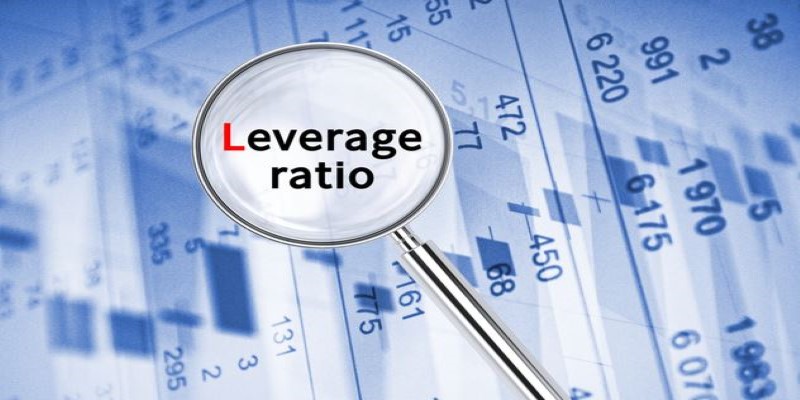6 Tips to Find the Right Tax Accountant
In the intricate world of taxation, lots of ordinary individuals and companies turn to a tax accountant for aid in following rules and getting the most out of savings. These people are very good at doing taxes, thinking about them ahead of time, and making sure everything follows the law. They are knowledgeable in tax laws and regulations, which helps their clients with complicated money issues. In this article, we will share six tips to help you choose the best tax accountant for your needs.
1. Consider Qualifications and Credentials
In the hunt for a tax accountant, it is key to put qualifications and credentials at the top. Search for those professionals who have important certifications like Certified Public Accountant (CPA) or Enrolled Agent (EA). These designations show that they possess superior skills and follow professional rules. Additionally, consider the accountant's educational background and any specialized training in taxation or accounting.
In considering qualifications, do not forget to take into account their continuous professional growth. Tax laws are changing often, and ongoing learning keeps accountants knowledgeable on the newest rules and tactics for client advantages. Also, keep yourself aware of any more certifications or courses that your possible accountant has finished as these show dedication in keeping up with what's happening in the industry.
- Continuing Education: Ensure the accountant engages in ongoing professional development to stay updated on changing tax laws and regulations.
- Certification Maintenance: Look for evidence of active participation in maintaining certifications, indicating a commitment to professional growth and excellence.
2. Prioritise Experience and Specialization

Experience is a big factor to consider when judging if a tax accountant is suitable or not. Look for professionals who have successfully managed tax issues like yours before. Whether you are an individual taxpayer, own a small business, or run a corporation, it is crucial to find an accountant with experience in the relevant area. Also, ponder if the accountant has expertise in particular taxation fields like corporate tax, international tax, or estate planning that align with your special needs.
Also, you should ask about the types of clients and industries the accountant has worked for. If an accountant has experience in many different areas, this could mean they can bring fresh ideas and solutions that fit your unique situation. On the other hand, having a focus on your industry can give you an understanding of tax effects and rule requirements specific to that sector.
- Client Base Diversity: Assess the accountant's experience across different industries to gauge their adaptability and breadth of knowledge.
- Industry Specialization: Consider whether the accountant specializes in your industry, as this expertise can enhance their ability to address industry-specific tax challenges and opportunities.
3. Research Reputation and References
Look up the reputation of a tax accountant and ask for references from old clients before you employ their services. Checking online reviews, testimonials, and recommendations from reliable sources could give a useful understanding of how dependable, professional, and efficient an accountant is. You may also contact your colleagues, friends, or professionals in the industry to recommend a good accountant for you. This way, make sure that the one you select has a good standing in his area of work and has demonstrated a history of providing outstanding service to clients.
Think about the awards and acknowledgments given to the accountant or their firm, not just reviews on the internet. These honors might show how good they are at their work and how much people like working with them, adding another layer to their reputation as a reliable guide in taxation matters. Consider industry prizes and acclaim bestowed upon the accountant or their company. Such awards could indicate superior performance and contentment of clients, strengthening their standing as advisors held in high regard within tax-related matters.
- Industry Recognition: Look for awards and accolades received by the accountant or their firm, highlighting their reputation for excellence within the industry.
- Client Testimonials: Seek out testimonials and recommendations from past clients to gain firsthand insights into the accountant's professionalism and effectiveness.
4. Emphasise on Communication and Accessibility
Working with a tax accountant demands effective communication. Select a professional who can communicate clearly and is easily reachable to handle your queries and worries. Set up standards about how often you will be in touch, the response time, and availability during tax planning and preparing stages. A proactive and responsive accountant can help alleviate stress and ensure a smooth collaboration.
Furthermore, think about the communication and document-sharing tools that the accountant uses, like secure online portals or digital collaboration software. An accountant who takes advantage of these resources can make communication easier and improve access to information. This helps in smooth interaction without being affected by geographical limitations.
- Technological Integration: Assess the accountant's use of technology for communication and document sharing to ensure efficient collaboration and accessibility.
- Communication Protocol: Establish clear expectations regarding communication channels, response times, and availability to foster effective collaboration and address any concerns promptly.
5. Consider Fee Structure and Cost

After you have made a choice, it is important to review the fee system of your tax accountant. Think about how much you will pay overall for their services. Some accountants might ask for an hourly rate while others can give flat fees or have different levels of pricing depending on how complicated your tax needs are. Ask them to provide a precise breakdown of the costs and also inquire if there are any extra expenses for other services or unexpected events (like audits). By knowing the cost effects beforehand, you can choose in a thoughtful manner that matches your budget and money ambitions.
In addition, look into possible cost-reducing chances or extra services the accountant may offer. Some companies might have grouped service deals or related advice like tax planning and financial analysis to make the total value better for their customers.
- Value-added Services: Inquire about additional services or advisory offerings provided by the accountant to maximize the value of your engagement and optimize your financial outcomes.
- Cost-saving Opportunities: Explore potential cost-saving measures or bundled service packages to ensure that the accountant's fees align with your budgetary constraints and financial objectives.
6. Assess Compatibility and Trust
Finally, evaluate the compatibility and reliability of the tax accountant. Building a good connection and trustworthy association is very important because you are going to give them your private financial details. Fix a primary meeting with the accountant to determine their professionalism, honesty, and readiness to give importance to what you need. Select an accountant who shows true enthusiasm for your financial prosperity and aligns with your values and goals.
Furthermore, you can also think about the company's standing in terms of keeping client information confidential and its efforts to ensure data security. When you give your financial details to a respected and dependable accountant, it guarantees peace of mind and privacy. This safeguards your sensitive information from unauthorized viewing or sharing with others.
- Confidentiality Measures: Evaluate the firm's data security protocols and confidentiality practices to ensure the protection of your sensitive financial information.
- Personal Connection: Prioritize building a strong personal connection with the accountant to foster trust, open communication, and a collaborative partnership focused on achieving your financial goals.
Conclusion
In conclusion, choosing the best tax accountant is a very important decision that can greatly affect your financial situation. You should focus on their qualifications, experience, reputation, and how well they communicate with you. Also, consider the cost and if they are compatible with your needs and goals. Use these steps to find a tax accountant who will work for you in the best way possible. Do complete research, ask for recommendations, and compare choices before making a final selection. With the help of a reliable tax accountant, you can manage the intricacies of taxation confidently and without worries.












